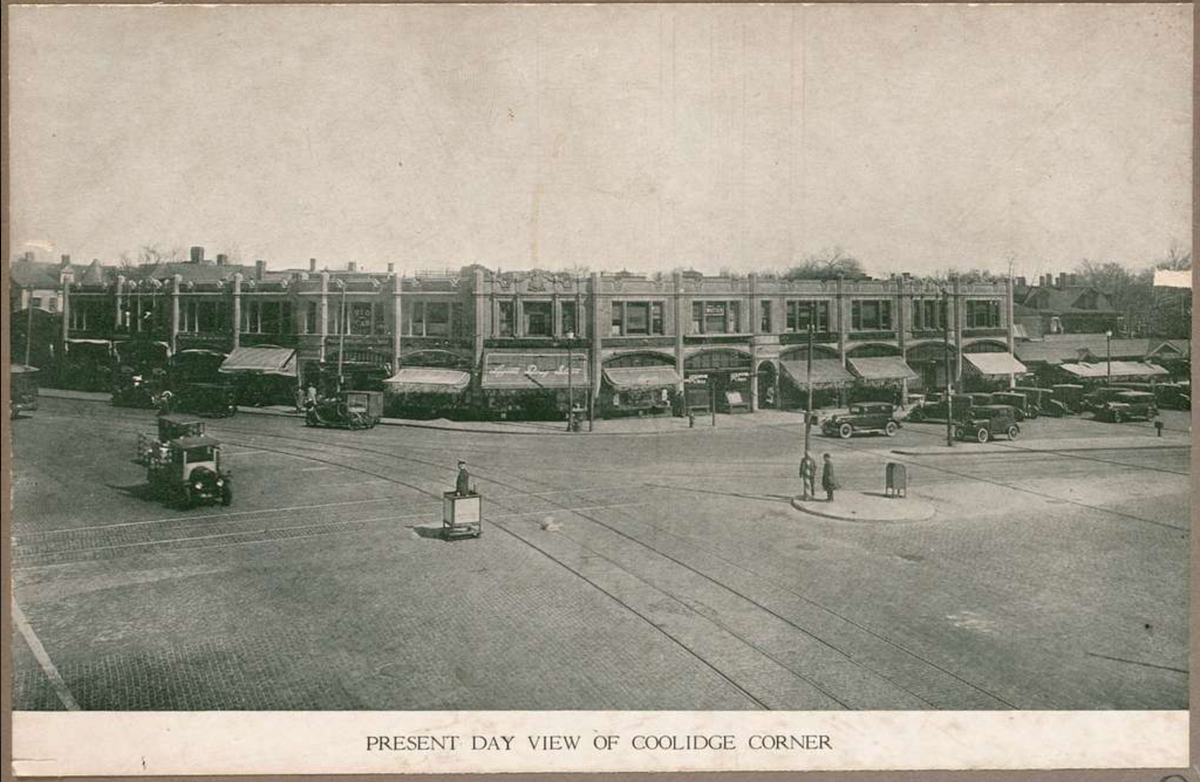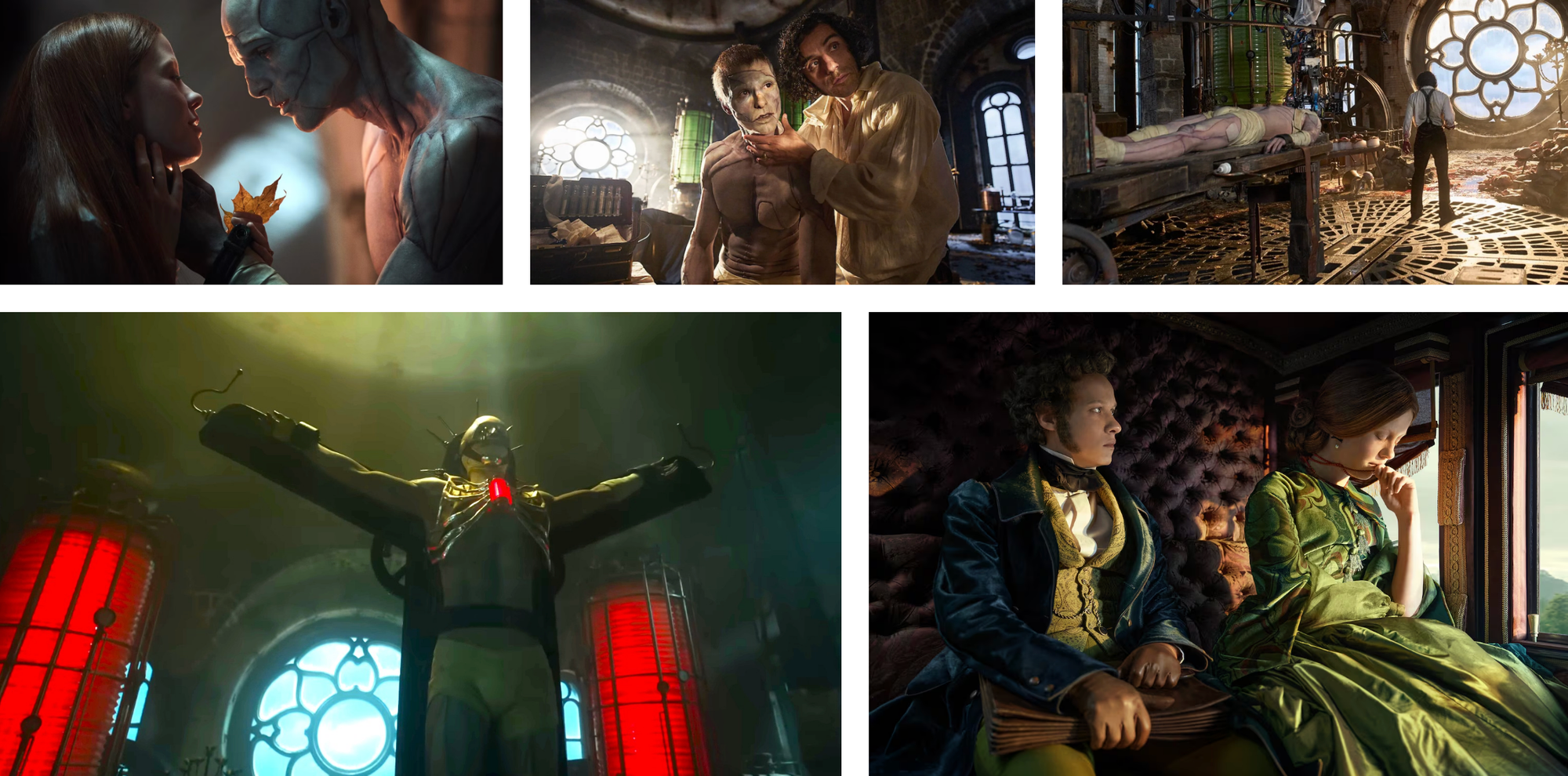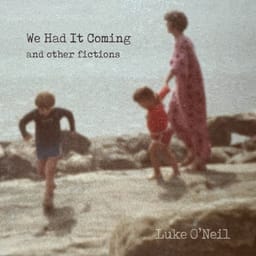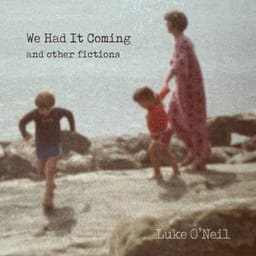The love we all deserve
Rax King on the carnage, sensuality, and longing of Frankenstein

I had a dream just now that my dead friend was alive and well. I'm sure you've had one like it. Why did you let me think that you were dead this whole time I kept asking him. Why would you do that to all of us? He didn't have a good answer. Then we both had to go work a shift at the restaurant which is another kind of nightmare.
It was a lot more distressing than the dream I had the night before which was a post-podcast induced version of "Lauren Lapkus is my best friend." I'm sure you've had one like that too.
I wrote about the loss earlier this year.

It is such a disorienting feeling when someone you care about but hadn't talked to that much in a couple of years dies suddenly because there is now a freshly dug hole inside of you and yet the day to day routine of your life has not been altered one bit. A new kind of absence has taken over for an older different shaped absence and the two are in conflict. Trying to fit a triangle shaped sadness into a rectangle shaped sadness.
It's 0° right now in Massachusetts in the coldest month in recorded history.
A friend texted me a couple days later about his own recent experience with a friend who had died by suicide and I said one thing I can't figure out is whether or not I have cried sufficiently. I have wept multiple times but I stopped after three or so days I said. What is that?
Is that enough?
The nightmares about it haven't stopped though.
Today Rax King returns to write about a different kind of reincarnation. On the carnage, sensuality, and longing of Guillermo del Toro’s Frankenstein.
Read a recent interview I did with her about her latest highly recommended book Sloppy Or: Doing It All Wrong.


The only inarguable language
by Rax King
Carnality is everywhere in Guillermo del Toro’s 2025 Frankenstein. I use “carnality” here more for its associations with meat than with sex. I can’t remember another recent film that treats flesh with such overt, expressive sensuality. In one early scene, little Victor Frankenstein’s pregnant mother eats raw offal on the grounds that it’s good for the baby, and we cringe not only because we know this to be incorrect but because of the way the meat squelches between her teeth. Years later, Dr. Frankenstein combs a newly christened battlefield for corpses to build his famous creature. He slaps the dead with vigor, digs his fingers into their purpling thighs. His scalpel cutting through human tissue sounds uncannily like a steak knife slicing a buttery filet. This director demands that you love oozing, stinking, rotting life as much as he does. He knows you don’t know how, and he is going to spend the whole film showing you.
My first conscious encounter with del Toro did not happen via one of his films but, improbably, when I read his introduction to his personally curated Penguin Horror series of classic horror novels (including Mary Shelley’s 1813 Frankenstein; or, The Modern Prometheus).
“To learn what we fear is to learn who we are,” he wrote. “Horror is no different, or less controversial, than humor, and no less intimate than sex.”
Because horror is the genre most willing to “make flesh” our innermost fears, he argues, it’s also unusually able to imprint on our souls. We may not bother to catalog every little mundane lesson life teaches us, but most of us can vividly recall times we felt tickled, horny, or terrified, because our bodies impose those feelings on us against our will and beyond our judgment.
In that same introduction, del Toro coyly writes that no adaptation of Shelley’s book has ever captured it whole, though many have been masterful. His own adaptation does hit most of the narrative beats, but diverges anew in its own way by keeping little of its original imagined set dressing intact. The film is set several decades later than the book was even published, allowing del Toro access to the baroque aesthetics of the Victorian era. And these are some decidedly baroque aesthetics—it’s a thrill to see one of our most imaginative directors cashing a blank check. Ceilings in this film are uniformly frescoed and super high. No surface or cornice goes uncarved, and the sculptural detail on one coffin is so delicate that it more closely resembles a down comforter than a pine overcoat.
Updating his story to the Victorian era allows del Toro some irresistible settings and costumes, as well as the more competently harnessed electrical power that streamlines the creation of Victor Frankenstein’s creature onscreen. But the most important thing the era offers him is carnality, repressed and morbid. Victorians, after all, were the ones making jewelry out of their dead lovers’ hair. They ate arsenic and painted ammonia on their lips to achieve the beauty ideal of the day, meaning: to be as pale as a corpse. The newly invented X-ray allowed scientists to literally see through all the layers of crinoline and shame that women’s bodies were hidden under, and if that analysis sounds too on the nose, know that I could have paired any scientific advancement of the age with any sexual hang-up and accomplished much the same rhetorical effect. Bodies had become more knowable and more frightening than ever before—perfect for del Toro’s purposes.
All the while he maintains an admirable thematic balance between the frankness and the shame that characterized Victorians’ approach to bodies. One wonders how these characters can be as lively and lusty as they are, weighed down by all the plush velvet they wear—but of course, lustiness under twenty pounds of tactical velvet is what the era was all about. Christoph Waltz is a slimy pleasure as Henrich Harlander, Victor’s financial backer, who sneers and struts to mask his terror that syphilis will claim him before the doctor’s project can revive him. Oscar Isaac brings an unblinking boyish mania to Victor, so obsessed by his project to cure death that we almost believe in it ourselves; he seems, throughout the film, as if he’s always been up all night. The film’s only casting misstep is Mia Goth, who has the right angel face for her role as Victor’s other obsession Elizabeth Harlander, but never conveys the desperation in which Waltz and Isaac are so fluent. They marry the desirous tics and shivers of their bodies to the material in a way that Goth does not.


